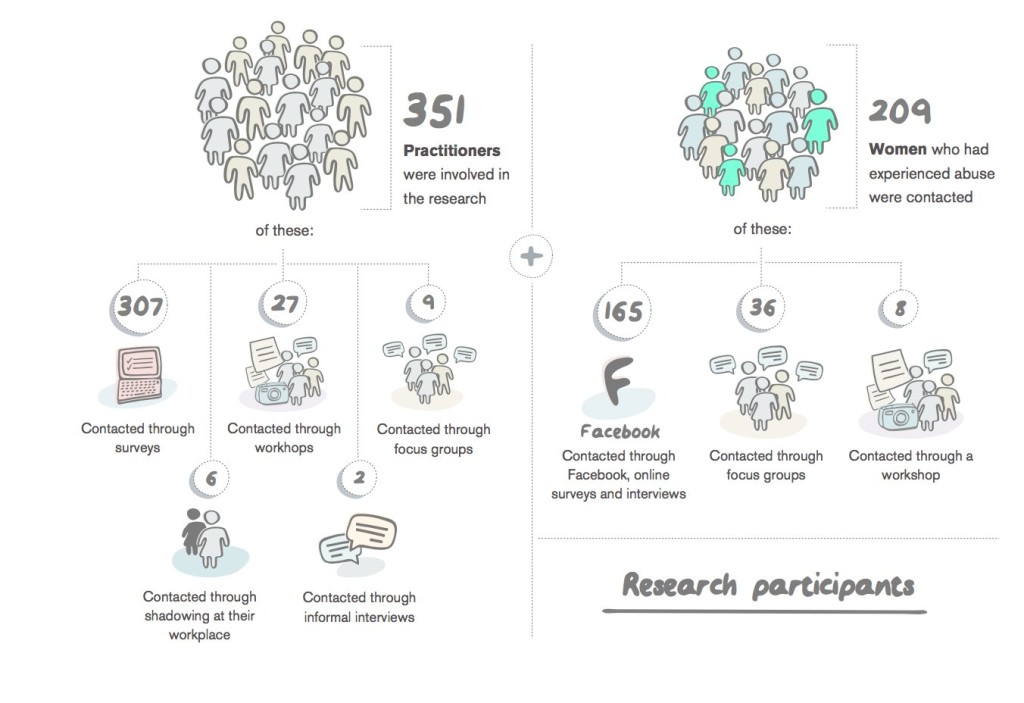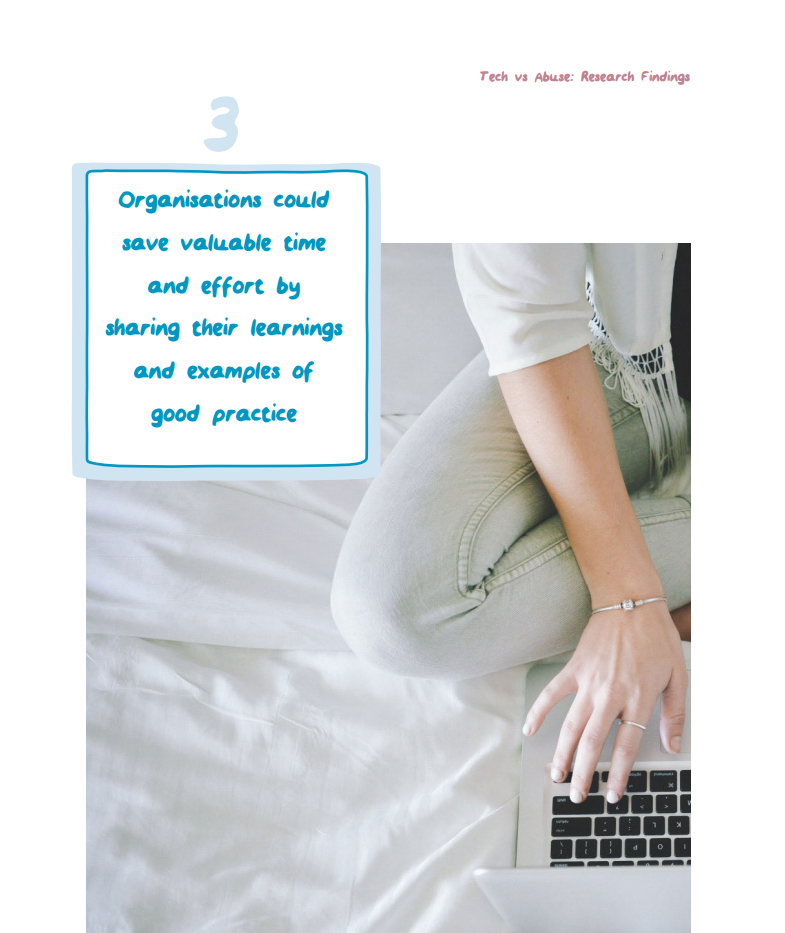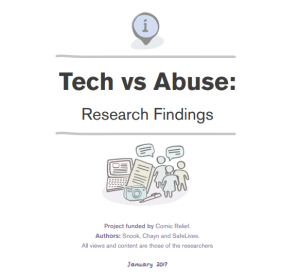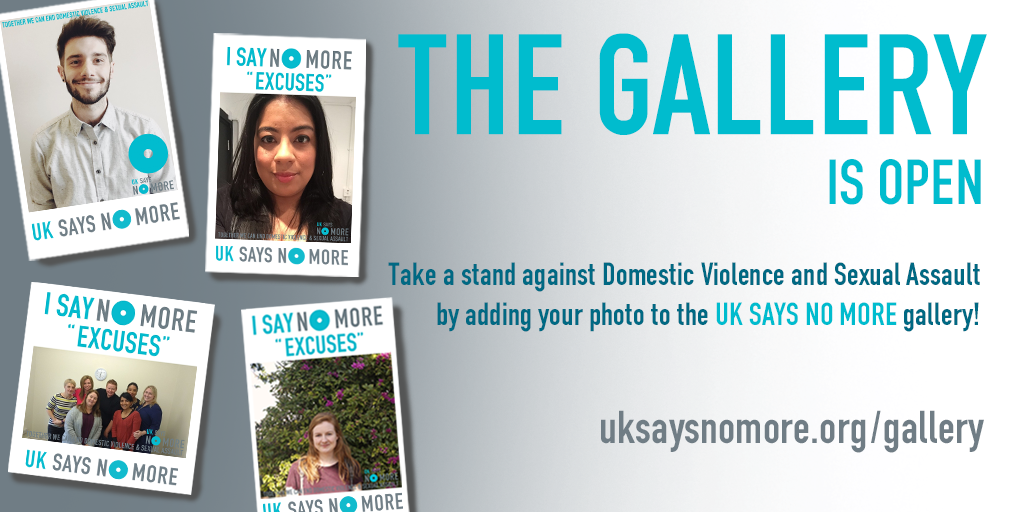How can technology help to address domestic abuse?
A collaborative study from Snook, Chayn and Safelives has been carried out and the findings published in January 2017.
The study, funded by Comic Relief, looks at the use of digital tools to support people affected by domestic abuse. Find out more:
This research was carried out over six months and set out to explore the potential opportunities, gaps and risks presented by technology in the context of domestic violence and abuse. It achieved this by gathering insights from over 200 survivors of domestic abuse (over 18 years old) and 350 practitioners who support them.
The research included both qualitative user research and quantitative methods. This consisted of online surveys, focus groups, online interviews, informal discussions with practitioners, workshops, and having researchers shadow practitioners and conduct contextual interviews at their workplace. Its aim was to find out how technology could play a supportive role in the context of domestic violence and abuse, and to understand how survivors and practitioners perceived technology in this context.
The report discovered a number of key findings, including:
Technology and Control: Almost half of the women involved said they were monitored online or with technology, through trackers, apps or internet blockers and 90% of 307 practitioners surveyed agreed technology was a tool for abuse. Both women and practitioners saw technology as a risk and felt they did not fully understand how to use technology effectively and safely.
Putting Safety First: To best ensure women’s safety when designing technology in this space, you have to think as an abuser. Technology needs to be discreet, disguisable and invisible. Technology can also be positive when re-purposed to provide evidence of abuse and to save key evidence and documents securely.
Different Needs at Different Stages and Backgrounds: What people want to know and why is different based on their individual circumstances and their relationship. Technology was a barrier for some and an enabler for others to getting the support, information and advice they wanted. Accessibility, background and circumstances were crucial to how women were able to use technology solutions. There is no ‘one size fits all’ but there were common uses and experiences of technology.
About the project, from Chayn, Snook and Safelives:
We’re four organisations working together to find out what role digital technologies can play in helping to support people affected by domestic abuse. In 2016, we’ve been talking to over 250 people affected by domestic abuse and to 350 support workers who help them, to see where digital could help. We’ve also been looking for every example where helpful technology already exists. This site documents the research findings and the design challenges we created to ensure the most immediate difference to people affected by domestic abuse.
Read the full research findings here and let us know your thoughts by getting in touch via Twitter or Facebook! We’d love to hear from you. Tweet to @UKSAYSNOMORE
SafeLives is a national charity dedicated to ending domestic abuse, for good. We combine data, research, and insight from services and survivors to find out what makes people safe. Domestic abuse is not acceptable, not inevitable and together – we can make it stop. SafeLives wants support for people to be early, effective and consistent – wherever you are, whoever you are. We do this by providing training, analysing data, providing support to frontline services, creating a platform for survivors to be heard and testing new interventions that do things differently. We want solutions, not short-term fixes. The statistic and stories continue to shock, and they’re not getting any better. We must commit to finding what works to stop it, for good, for everyone. See: safelives.org.uk @safelives_
Snook is an award-winning service design agency working globally across the public, private and third sectors. We’ve been transforming services and organisations since 2009: working with companies across the world to ensure the products, campaigns and services they deliver work for people. Within our team, we have dedicated researchers who focus on uncovering people’s needs, using a range of design ethnography methods and tools. Our researchers work closely with our design and events teams to translate these into design principles for services and products to be developed in the future. See wearesnook.com @wearesnook
Chayn is a volunteer-led open source project that leverages technology to empower women against abuse and oppression. Started in 2013, the project now supports several projects that includes crowdsourced platforms for support, how to guides, hackathons to create new solutions and running digital services. Chayn is 100% volunteer-run with a motto of ‘building with, not for’ survivors. Chayn was named one of Nesta’s ‘New Radicals’ in 2016, as one of the projects radically changing Britain for good. See chayn.co @chaynHQ
Related posts: Global tech project Chayn launch DIY Online Safety Guide






